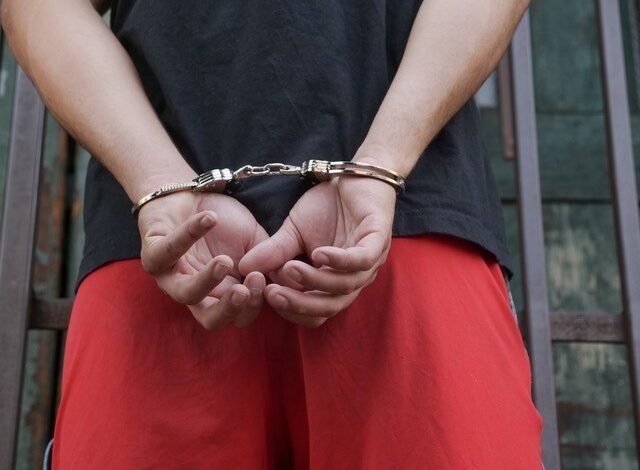DEATH PENALTY: A HUMAN RIGHTS VIOLATION
The death penalty entails the execution of a person who has committed a felony. The crimes that can be punished by death vary according to the jurisdiction and the most common ones are all major crimes against people — such as murder, rape, exploitation — or those against the governments, including espionage and terrorism. According to Amnesty International, in 2020 no less than 483 executions were carried out in 18 different countries, with a decrease of 26% compared to 2019. The majority of these executions took place in Iran, Egypt, Iraq, Saudi Arabia, and China, which continues to be the world’s leading executioner. However, accurate data about capital punishment in China cannot be accessed as it is considered a state secret.
Death penalty as a legitimate sanction
The following are some of the reasons why some people believe that the death penalty is a valid punishment:
- Retribution: as a result of the offence they have committed, those convicted are necessarily thought to deserve to suffer equally. Therefore, if someone commits murder, the right punishment is death.
- Deterrence: as they know what the consequence can be, many believe that capital punishment would discourage people from committing such crimes.
- Rehabilitation: it is believed that people who are condemned, before being executed, have the chance to confess, show guilt and undergo deep spiritual healing.
- Prevention of reoffending: in some cases the accused ones, after being released from prison, committed the same crime again. Consequently, it is believed that execution is the only means we have for being sure we prevent the offender from repeating the same offence.
- Closure and vindication: capital punishment is claimed to provide justice for the families of the victims.
- An incentive to help police: if the offenders face the risk of execution, it is argued that they are more likely to cooperate with the police.
Human rights violation, social group discrimination, and innocence
 According to Article 3 of the Universal Declaration of Human Rights, ‘everyone has the right to life, liberty, and security of person’. In addition, Article 5 states that ‘no one shall be subjected to torture or to cruel, inhuman or degrading treatment or punishment’. As stated by United Nations Secretary-General António Guterres, ‘the death penalty has no place in the 21st century’. It is clear that the death penalty represents a breach of a person’s human rights.
According to Article 3 of the Universal Declaration of Human Rights, ‘everyone has the right to life, liberty, and security of person’. In addition, Article 5 states that ‘no one shall be subjected to torture or to cruel, inhuman or degrading treatment or punishment’. As stated by United Nations Secretary-General António Guterres, ‘the death penalty has no place in the 21st century’. It is clear that the death penalty represents a breach of a person’s human rights.
Capital punishment has long been criticised for being discriminatory on the basis of the social group the accused belongs to. As an example, in this study conducted by the United Nations, it is observed that poor people are disproportionately impacted by the death penalty: they have a smaller chance of getting fair representation as they are unable to afford a lawyer, and tracing witnesses is prohibitively expensive for them.
 Wrongful execution is another reason why capital punishment cannot be considered a viable option. It occurs when an innocent person is sentenced to death. This study observes that, in the United States, at least 4.1 percent of people sentenced to death are eventually found to be innocent. That was the case for Carlos DeLuna. On February 4th, 1983, he was charged with murder and then executed for killing a gas station attendant in Corpus Christi, Texas. During the trial, DeLuna stated that he was innocent and that, instead, the murderer was Carlos Hernandez, a man who looked very similar to him. The attorney did not believe him and sent him to death row. Years after the execution, they found out that Carlos DeLuna had actually told the truth: Carlos Hernandez was the real murderer and had committed many offences similar to the one Carlos DeLuna was accused of. Mistakes can be made during the trial; however, the death penalty is irrevocable and it takes the life of an innocent person for good.
Wrongful execution is another reason why capital punishment cannot be considered a viable option. It occurs when an innocent person is sentenced to death. This study observes that, in the United States, at least 4.1 percent of people sentenced to death are eventually found to be innocent. That was the case for Carlos DeLuna. On February 4th, 1983, he was charged with murder and then executed for killing a gas station attendant in Corpus Christi, Texas. During the trial, DeLuna stated that he was innocent and that, instead, the murderer was Carlos Hernandez, a man who looked very similar to him. The attorney did not believe him and sent him to death row. Years after the execution, they found out that Carlos DeLuna had actually told the truth: Carlos Hernandez was the real murderer and had committed many offences similar to the one Carlos DeLuna was accused of. Mistakes can be made during the trial; however, the death penalty is irrevocable and it takes the life of an innocent person for good.
The death penalty is a violation of basic human rights and a result of a violent society. It does not increase public safety, as much as it is discriminatory and irreversible. Instead, we should prioritise supporting the families of the victims and focus on the re-education of the accused.

